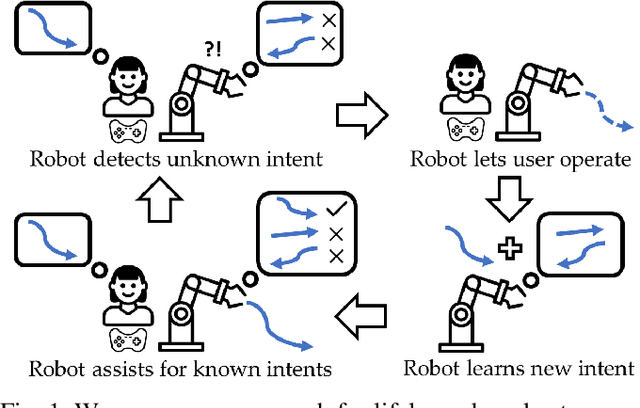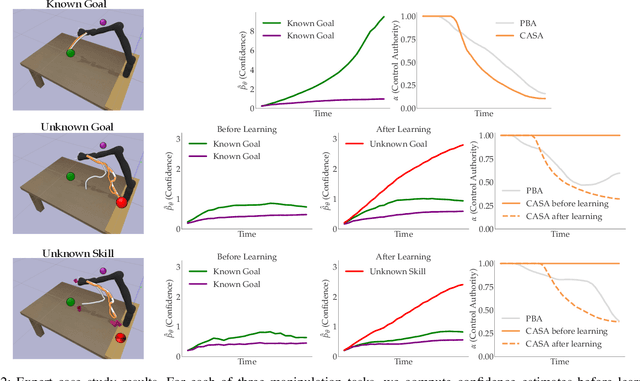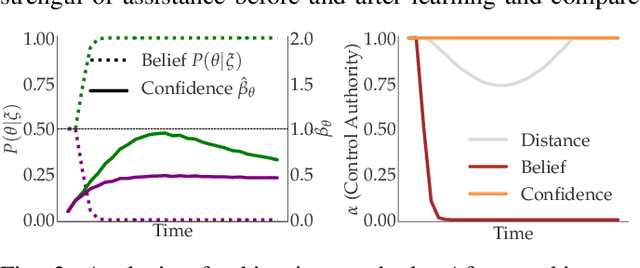Situational Confidence Assistance for Lifelong Shared Autonomy
Paper and Code
Apr 14, 2021



Shared autonomy enables robots to infer user intent and assist in accomplishing it. But when the user wants to do a new task that the robot does not know about, shared autonomy will hinder their performance by attempting to assist them with something that is not their intent. Our key idea is that the robot can detect when its repertoire of intents is insufficient to explain the user's input, and give them back control. This then enables the robot to observe unhindered task execution, learn the new intent behind it, and add it to this repertoire. We demonstrate with both a case study and a user study that our proposed method maintains good performance when the human's intent is in the robot's repertoire, outperforms prior shared autonomy approaches when it isn't, and successfully learns new skills, enabling efficient lifelong learning for confidence-based shared autonomy.
 Add to Chrome
Add to Chrome Add to Firefox
Add to Firefox Add to Edge
Add to Edge